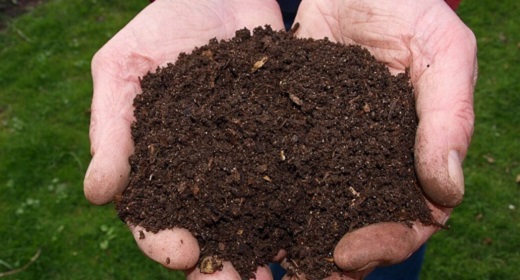by Monica LeBlanc: Be a traveler, not a tourist” – Anthony Bourdain
Lately, I’ve been considering getting these words tattooed on my body somewhere. I think about them all the time. This one sentence helps me reflect on not just the places I’ve been, but the experience of those places. I think about the stars in Saint-Tropez that I watched on a dark night as a lonely teen. I remember the taxi driver that took care of me when I was feeling sick in New York City. I was a young kid finding my way and getting in trouble. I can still taste the incredible Lambi of St Lucia, the tender meat falling off the bone and the beautiful local peppers surrounding it.
When I think about travel, I also remember getting lost in the streets of Paris at 5am, because I couldn’t remember where my hotel was. The moment I cried in the alley way in Mexico because I became fast friends with a new kind of Tequila, which tasted good but had consequences unbeknownst to me. Travel has left me open, broken, and aware in the best and worst kind of ways I am recalling as my body shivers with the memory of my first ever ride in a Cessna (a very tiny, 8 passenger plane).
What exactly is the difference between being a traveler versus a tourist? And why does traveling offer extensive mental health benefits? How does one know when one is travelling rather than touristing?
I predict that if the late Anthony Bourdain were with us (RIP) he would talk about getting out of our comfort zone. He would tell us to disregard the Yelp reviews and just pick a place that sounded interesting; not good, interesting. I have had some of the best meals of my life in shacks with a roof made from whatever recycled materials were available.
This is not to say that there is something wrong with having a luxury five-star experience. No judgment for laying by the pool and having a pina colada in a beautiful place! We all need those moments sometimes. Just make sure that this isn’t the only way you experience the place you are visiting. I find that when I visit a new place, but I keep myself by the pool, I leave the experience wanting more and wishing I had done it differently. I want to know about the people around me. I want to immerse myself in their culture in a respectful and reverent way that doesn’t center my experience and comfort over their way of life.
This has been a huge growth edge for me in my adult life as I have practiced becoming a traveler. An important distinction I must make, this is a practice, not a destination. When I watch old episodes of Anthony Bourdain’s shows, I can see the ways in which he did not always travel but sometimes touristed. Easy to say from afar but, stay with me.
Summer Mental Health Prescription: Travel If You Can
If you’ve never been immersed in a culture of people speaking a different language, maybe people that look different from you, it’s a great way to learn about being uncomfortable. It’s a way to stretch what we call in the mental health field “distress tolerance,” an extremely valuable mental health resilience skill. Distress Tolerance comes from a type of therapy called Dialectical Behavior Therapy, or DBT. Founded by Marsha Linehan, DBT teaches skills for how to tolerate being uncomfortable in order to promote personal and psychological growth.
There has been no greater growing edge for me than travel. As a youngster, I was so fortunate to have a grandmother who was an immigrant. Her experience moving across the world allowed her to appreciate the value of expanding one’s distress tolerance. Because she believed in my ability to cultivate resilience, she instilled the value of travel in me from the time I took my first solo plane ride at 5 years old. Shocking when we think about that today, I know! But hey, it was the 90s! I remember loving the feeling of sitting on the plane next to the grownups while the plane ascended into the air, and I left my parents at the gate. The pilot donned my lapel with a pair of wings as I munched on peanuts and sipped an extra bubbly ginger ale. I was proud of myself. I was uncomfortable. I felt scared, curious, and invigorated.
I remember the first time I experienced being in a country where I didn’t speak the language. I was 9 and there was French all around me. I remember feeling frustrated, exhausted even, trying to understand things that were happening. For the first time, I felt the sting of the notion that my way of life isn’t the “norm.” But rather, that “norm” was a concept based on my narrow experiences and that I couldn’t generalize those experiences to the rest of the world. A world, I realized, I knew very little about. In the end, it fueled my thirst for knowledge of other languages and cultures. That discomfort and my challenge to tolerate it was alchemized into a learning opportunity. And now, I speak pretty functional French, bien sûr!
When we travel, there are so many situations we encounter that challenge our everyday ways of functioning. We don’t even have to go far! Visiting a new part of town, a different religious practice or space, or even a restaurant with the food we have never tried, can elicit these skills.
Traveling means that we are navigating new terrain, new culture, new language, and always new experiences. We learn about who we are and why we are that way. We learn how shaped we’ve been by things we might not have considered. We learn that our norm is not everyone’s norm.
I remember my first time in a foreign county, marveling at the size of things. Everything in this country felt smaller. The trash cans, the water glasses, and the cabinets in the apartment all created an opportunity for adjustment and brought me face to face with my own way of living. This brought me to the realization that if I put in some effort, I could make less trash, carry less luggage, and live more efficiently. A gift I will always cherish despite the fact that I still struggle with a giant suitcase everywhere I go.
Ready to travel and set touristing on the shelf? Here are some quick tips to dive into the culture without disrespecting it. Explore how to alchemize the discomfort you experience when things are different than your home country, town, or city
Distress Tolerance Skills to Practice While Traveling
1. Notice and label the thought
Thoughts are just things that occur naturally, they are not the absolute truth. When a thought occurs, practice naming it as a thought instead of accepting it as truth. Example of a thought: “I don’t fit in here” This can be labeled as a thought but should be examined for truth. How do you know you aren’t being accepted? Can you read the minds of the people around you? Is it possible that the cultural expression of acceptance looks different here than where you are from?
2. Be present in the moment
One time I was on a very crowded train in Portugal with my ever-present giant suitcase and for some reason, us passengers were forced into a standing room only portion of the train for a period of time. Looking back, I am positive it wasn’t long, but I remember feelings of claustrophobia creeping in. I knew there was nothing I had control over in that moment except my mind.
So, I took a few deep breaths and decided to take a slow look around. I saw the Portuguese mountains in all their glory, I heard the hum of the train’s air conditioner, and I listened to conversations around me in many different languages. I found the time that had been creeping by at a snail’s pace, suddenly quickening its pace. We cannot control flight delays, crowded subways, or the speed at which someone delivers us a refill, but we always have the option of mindfulness and presence.
3. Practice curiosity!
Notice things around you that are different and get curious about them and their origins. What does this place have to teach you? What are the things about yourself and your life that this place reflects back to you? What do you notice about yourself and your ability to sit with discomfort?
4. Go to the grocery store.
One little thing I always do when I travel is I go to the local grocery store. Not necessarily to buy things but to experience one of the standard ways that people in the culture I am visiting live. What do they eat with their families? How do they prepare meals? What kinds of beverages quench their thirst? So much to learn from a grocery store.
I hope this summer takes you into opportunities to travel and experience things in a new way. I hope you can feel into your growth edges instead of running from them. I hope you can see your discomfort as an opportunity to learn about yourself and others. I hope you can practice being curious without centering your life and requirements. I wish you discomfort in the best way.









































